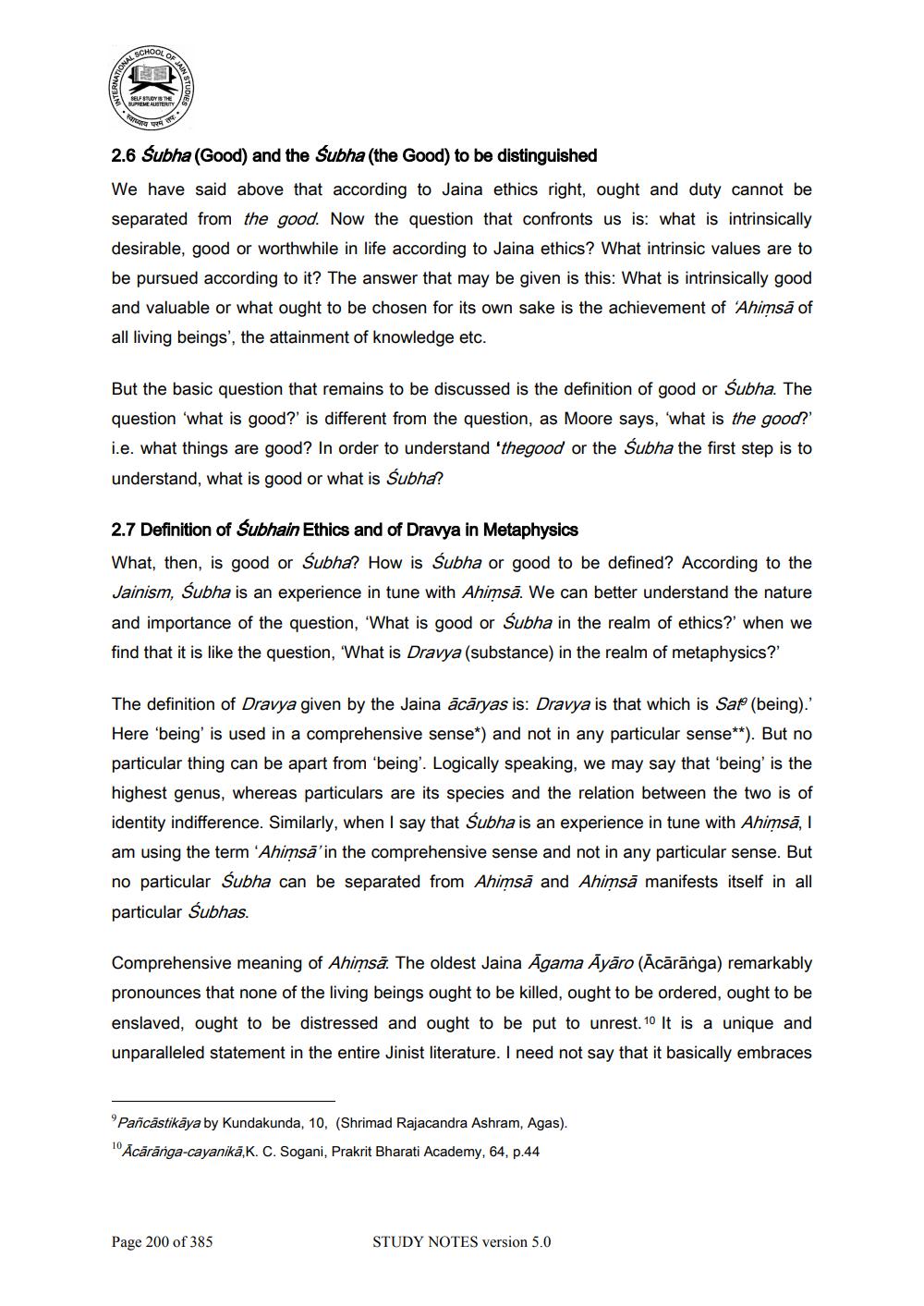________________
STUDIES
2.6 Subha (Good) and the Subha (the Good) to be distinguished We have said above that according to Jaina ethics right, ought and duty cannot be separated from the good. Now the question that confronts us is: what is intrinsically desirable, good or worthwhile in life according to Jaina ethics? What intrinsic values are to be pursued according to it? The answer that may be given is this: What is intrinsically good and valuable or what ought to be chosen for its own sake is the achievement of 'Ahimsā of all living beings', the attainment of knowledge etc.
But the basic question that remains to be discussed is the definition of good or śubha. The question 'what is good?' is different from the question, as Moore says, 'what is the good?' i.e. what things are good? In order to understand 'thegood or the Šubha the first step is to understand, what is good or what is Subha?
2.7 Definition of Subhain Ethics and of Dravya in Metaphysics What, then, is good or śubha? How is śubha or good to be defined? According to the Jainism, Subha is an experience in tune with Ahimsa. We can better understand the nature and importance of the question, '
What is good or śubha in the realm of ethics?' when we find that it is like the question, 'What is Dravya (substance) in the realm of metaphysics?'
The definition of Dravya given by the Jaina ācāryas is: Dravya is that which is Sat (being).' Here 'being' is used in a comprehensive sense*) and not in any particular sense**). But no particular thing can be apart from being'. Logically speaking, we may say that being' is the highest genus, whereas particulars are its species and the relation between the two is of identity indifference. Similarly, when I say that subha is an experience in tune with Ahimsā, i am using the term 'Ahimsā'in the comprehensive sense and not in any particular sense. But no particular śubha can be separated from Ahimsa and Ahimsā manifests itself in all particular śubhas.
Comprehensive meaning of Ahimsā. The oldest Jaina Āgama Āyāro (Ācārānga) remarkably pronounces that none of the living beings ought to be killed, ought to be ordered, ought to be enslaved, ought to be distressed and ought to be put to unrest. 10 It is a unique and unparalleled statement in the entire Jinist literature. I need not say that it basically embraces
Pañcāstikāya by Kundakunda, 10, (Shrimad Rajacandra Ashram, Agas). 1Ācārānga-cayanika, K. C. Sogani, Prakrit Bharati Academy, 64, p.44
Page 200 of 385
STUDY NOTES version 5.0




